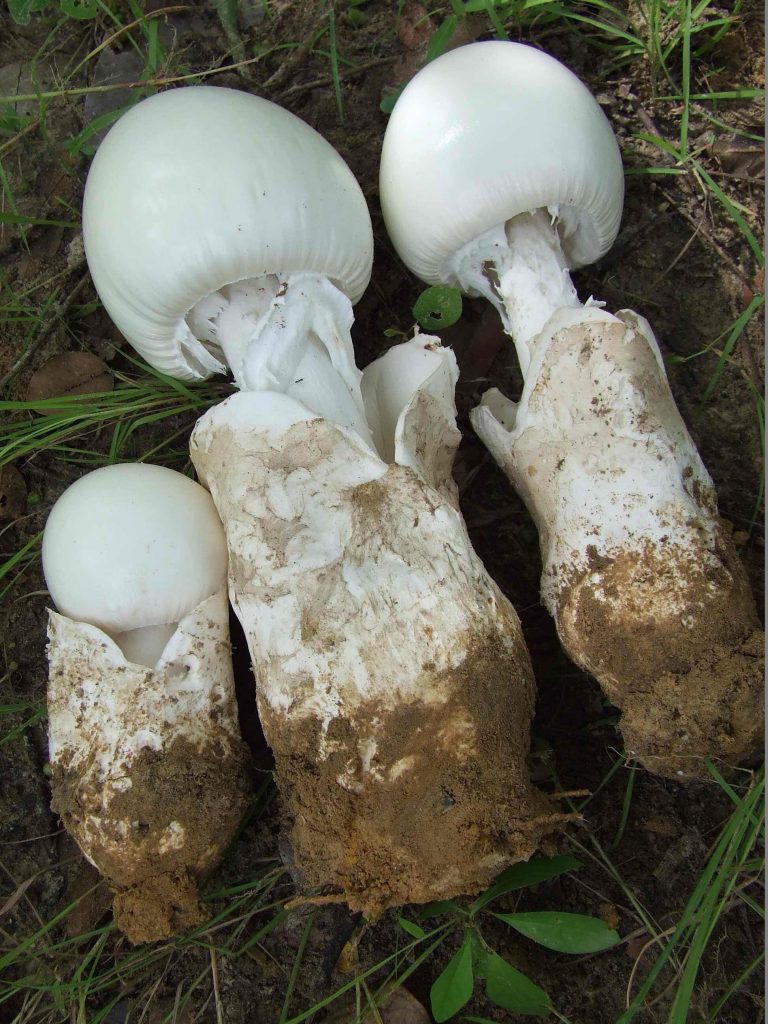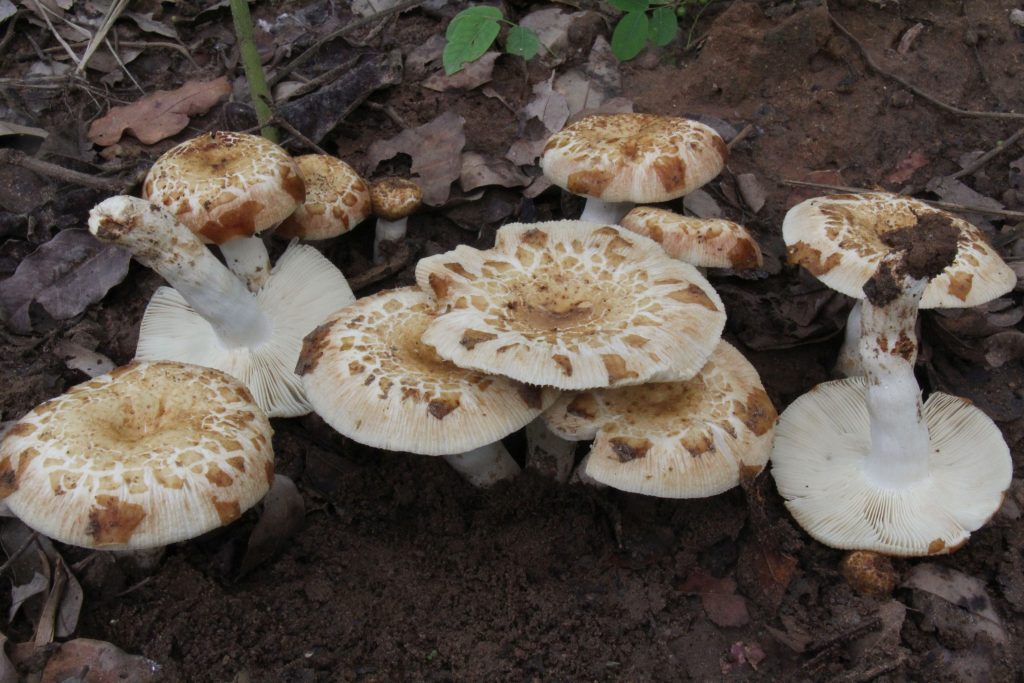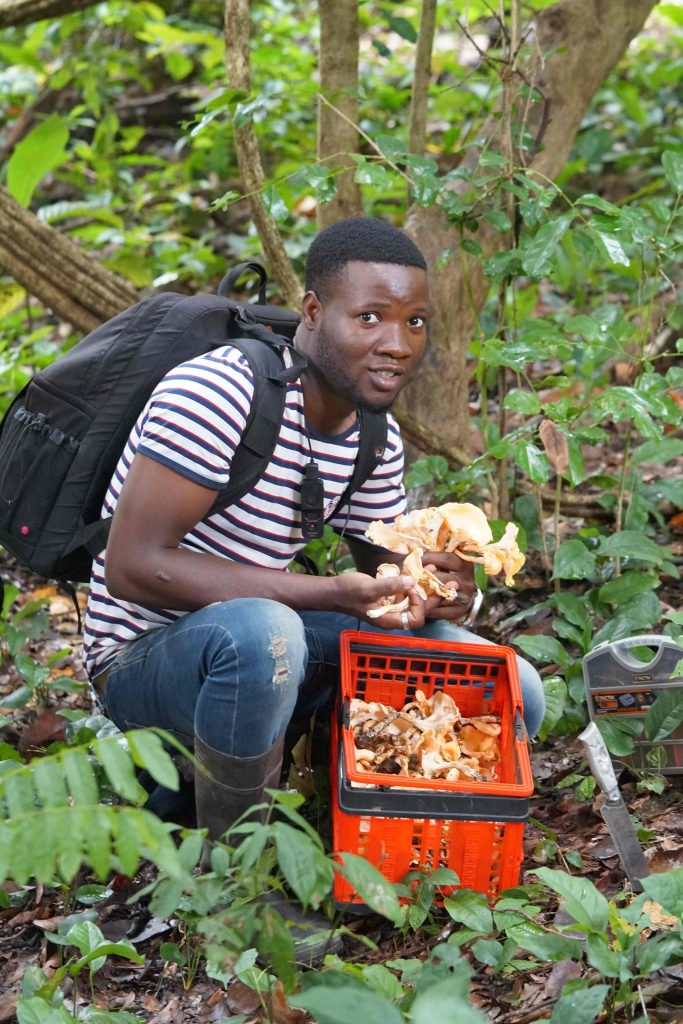The use of wild fungi as food is a long-standing tradition within African rural communities. Tropical African local people have developed deep mycological indigenous expertise full of taxonomical, ecological and phenological information. In tropical forest ecosystems, wild edible fungi are not only diverse in term of species richness, but natural production largely overcome the annual local consumption, thus pointing out some thoughts about how best the utility of such production can be maximize to face food insecurity. Tropical mycology has been sustained by a large number of on-going ethnomycological investigations, as also the case since recently with methods for measuring fungal biomass in natural forests. At the same time, the unrestrained degradation of fungal habitats jeopardizes life of thousands people living in the vicinities of natural forests who also depends upon wild fungi for their life. There are presently urgent actions toward the protection of wild edible fungi and their habitat. In some few countries, attempts to develop mushrooms-based local economic activities have been implemented in order to sustain the livelihood of local people and protect the forest. In the present subtopic, we will debates about methods for assessing the diversity and natural production of wild edible fungi. Any abstract treating with the relation between wild fungi and local people is almost welcomed. We will also accommodate talks with strong conservation issues as well as those presenting effort to promote wild fungi into economic channels.

Amanita loosii (Fazao National Parc, Togo, July 2008, Photo NS Yorou) 
Russula oleifera sampled from Kilibo Forest in Benin (NS Yorou) 
collect of Cantharellus solidus in Bassila Forest Reserve (Benin, 2018 by R.Dramani)
